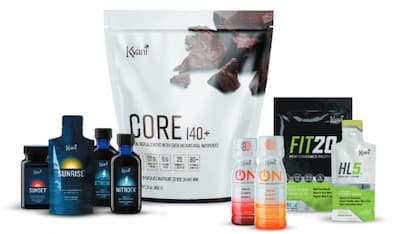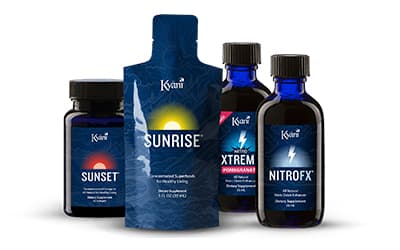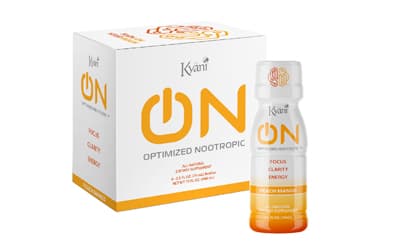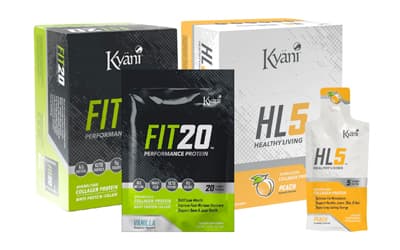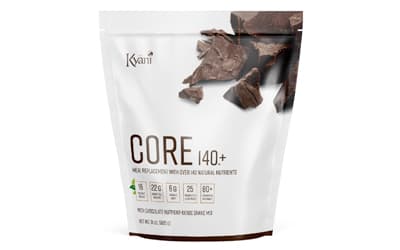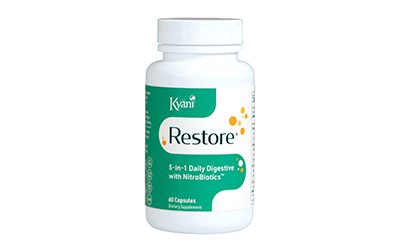Amino acids play important roles in the body, and the human body makes proteins from these substances. The two types of amino acids are referred to as essential and non-essential. There are twenty naturally occurring amino acids. They are all similar in their structure and share a variety of common characteristics. They all share a hydrogen-bonded atom and have an amino group attached to the a-carbon.
A balanced diet will supply adequate amounts of the amino acids, but too little can lead to protein breakdown and could weaken the body over time.
Amino acids are the building blocks of proteins. They are the molecules that make up the structure of hair, skin, nails, muscles, and all other living tissues. They are also used to build enzymes, hormones, and other cell components.
You can get amino acids by eating protein. But you don't have to eat protein in order to get amino acids - any food contains free amino acids.
There are about 20 different kinds of free amino acids found in foods.
Amino acids are the building blocks of proteins. Proteins are the building blocks of living things. They make up your muscles, your hair, and (in humans) your fingernails and toenails. Also, the enzymes that run every chemical reaction in your body are proteins.
So amino acids are very important molecules.
In fact, if you have a food that is mostly protein, it's all just a delivery system for amino acids. Foods that have only a little protein but a lot of fat or carbohydrate are good food sources as long as they have some protein in them too—ideally enough to supply all the essential amino acids you need to stay alive.
There are twenty kinds of amino acids used by living things, but eleven of them can be synthesized by a healthy adult human being from the other nine, so they're not essential to get from your diet.
Amino acids are the building blocks of proteins, which are essential for life. Protein is the major constituent of all cells in your body. Proteins are polymers that are built by linking together smaller molecules called amino acids. There are 20 amino acids that are used in protein synthesis, and 9 of them must be supplied by food because they cannot be synthesized by the human body.
The benefits of amino acids are widely known. Everyone needs them to maintain their overall health and fight almost every disease. But how do we choose the best brand? Which form to take? And when should we take them? Here are some tips:
- Eat protein-rich foods: Protein-rich foods such as nuts and chicken breasts contain high levels of these nutrients. Choose a brand that's absorbed well in the stomach and is easy to digest.
- Check with your doctor first: Some people may be allergic to supplemented amino acids. Moreover, people with medical conditions may have problems taking supplements. But in general, it's safe to take amino acid supplements. Just be sure to consult with your doctor before starting a supplement. This way, you can make sure it won't cause any adverse side effects. In addition, amino acids can help you lose weight.
- Amino acid supplements can help you lose weight. Not only do they help you burn fat, they can increase your energy and your focus. They can help you improve your workouts and your mind's performance during events. This means that you'll make better decisions and perform at the highest level. That means you'll be more efficient and able to get more done in the gym. The benefits of amino acid supplements are numerous, and there's no better time than now to begin your journey to healthier living.
There are many sources of amino acids, but if you're unsure, consult your doctor to learn more. Ideally, you'll be able to get the necessary amount of amino acids from food alone. However, there may be some individuals who have a harder time absorbing these nutrients. They may need more than you can get from food. The best way to get your daily dose of amino acids is through an infusion.
Amino acids are naturally present in plant products, but they are also found in animal products. Amino acids can be found in animal products, but if you want to be sure you're getting enough, you should look for a supplement. If you're not satisfied with your diet, you can try a multivitamin supplement that contains the amino acid you need. If you're looking to build muscle mass, you can also take a dietary supplement that includes BCAAs.
A simple solution for getting enough amino acids in your diet is to take an oral supplement. Amino acids are available as oral supplements and in powders for sports performance.
If you're looking for an amino acid supplement, you need to make sure you know which type is best for your health. If you're an athlete, you'll probably want branched-chain amino acids as they help with recovery from intense exercise. They are also important for muscle repair and the myelin sheath surrounding nerve cells. They are the building blocks of protein. So, it's important to consider what kind of amino acid supplement you'll need.
The best reason I can give you to take amino acids is the one I got from my own coach. He recommended them because they help you recover faster.
How much faster? That depends on what you mean by "faster." Some people think that taking amino acids will make you run a sub-four-minute mile, or benchpress 400 pounds, or be able to swim a cross a large channel. Not even the most enthusiastic claims for amino acids are that dramatic. But almost everyone who takes them notices some positive effect on their training.
The other thing to consider is that not every athlete should take amino acids. Some of the positive effects of amino acids are greatest in people who have trained for fewer than five years or so. For those people, taking amino acids could be the difference between being an athlete and being a couch potato. If you're already an Olympian, there's a reason for you to take them.
Amino acids are the building blocks of protein. Protein is found in all living things, and it's a major part of your muscles and other tissues. Protein from food is broken down into amino acids during digestion, and the amino acids are used to build new proteins.
In theory, you could get all the amino acids you need from food. In practice, it's hard to get enough protein from food, and for athletes or people who work out frequently it can be nearly impossible. The recommended daily allowance for protein is 0.36 grams per pound of body weight. So a 200-pound athlete should eat about 54 grams of protein a day to meet the RDA. If he eats three meals a day, that's about 18 grams of protein at each meal—a pretty big serving of meat or two eggs. And if he adds a post-workout shake, he's up over 20 grams. An athlete at rest needs only half as much protein as an athlete in training, but he still needs around 30-40 grams a day to get his share of essential amino acids—several times the RDA for sedentary people.
To enroll or purchase Kyani products you can use our independent Business Partner links:

